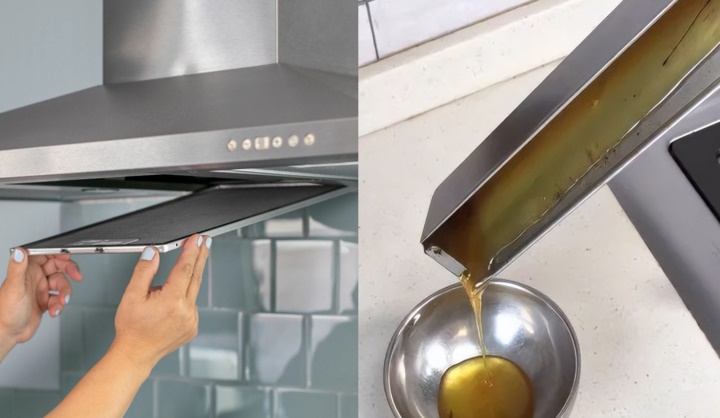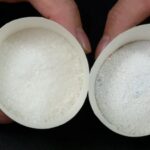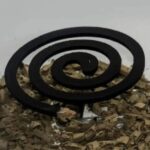Range hoods are specifically designed to suck up grease-laden smoke. Once sucked up, the smoke condenses into liquid grease as it cools down, settling in the hood’s grease collection box or drum.
The grease collected in range hoods tends to be sticky and greasy, leading most people to discard it as they believe it serves no purpose. However, there are several uses for this grease that you can take advantage of.
Uses for Waste Grease from Range Hoods
In the absence of specialized products, you can use waste grease from range hoods to address the following issues:

Uses for waste grease from range hoods (Image: Thekitchn)
Lubricate Locks, Door and Cabinet Hinges
A stuck lock or rusty key can make opening a door difficult. One of the uses for waste grease from range hoods is to address this issue.
Simply apply a small amount of the waste grease to the key, insert it into the lock, and turn it left and right. This will lubricate the lock mechanism, making the door open more smoothly and also helping to prevent future lockouts.
Similarly, doors tend to creak after prolonged use due to worn-out hinges. Applying waste grease to the hinges and spreading it evenly can solve the creaking problem and also prevent rust from forming.
Remove Rust from Scissors
Scissors can become rusty and stuck over time. Waste grease from the range hood can be used to lubricate and maintain the scissors while also preventing rust.
After applying the grease, let it sit for a few minutes before cutting and then wipe the scissors clean.
Pest Control: Flies, Mosquitoes, Rats, and Cockroaches
Due to prolonged storage, the waste grease from range hoods tends to be very sticky and greasy. This makes it difficult for insects like flies, mosquitoes, cockroaches, and ants to escape once they come into contact with it.
Therefore, this waste grease can be used as a safe, environmentally friendly, and non-toxic pest control method. Simply mix some rice with the grease and add a small amount of detergent. Stir the mixture, remove the rice, and place it in areas frequented by pests.
The pests will be attracted to the rice but will be unable to escape due to the grease. Additionally, the chemicals in the detergent can be harmful to them. This method can also be used to catch flies, mosquitoes, and cockroaches by mixing a tablespoon of white sugar into the grease to create a thicker solution. Place the mixture in areas where these pests are commonly found, and they will be trapped and unable to escape.
Make an Oil Lamp
You can put the waste grease from your range hood to good use by making an oil lamp.
First, find a suitable container and fill it with the waste grease. Then, take a piece of cotton string or wick and soak it thoroughly in the grease. Pull it out gently through the lid, which should have a small hole, and light it with a match or lighter to create a simple yet effective oil lamp.
This can come in handy during unexpected power outages when you don’t have access to flashlights or candles.
Source: VTC news





































